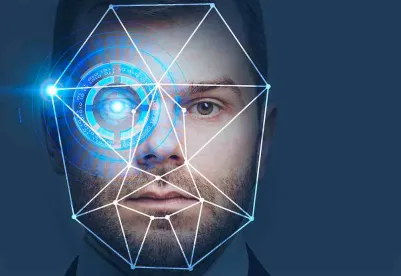At this point, readers of CPW are familiar with the Clearview Illinois Biometric Information Privacy Act (“BIPA”) litigation. The case raises novel data privacy and constitutional issues, as underscored by a recent development in the case.
Clearview previously moved to dismiss Plaintiffs’ claims under BIPA and various other states’ laws. Among other arguments, Clearview claimed that Plaintiffs were improperly attempting to apply BIPA to Clearview’s out-of-state conduct in violation of Illinois’ extraterritoriality doctrine (which requires that the conduct at issue occurred “primarily and substantially” in the state). This standard was plainly not satisfied here, Clearview argued, as none of the conduct relevant to Plaintiffs’ claims occurred in Illinois, and therefore the litigation should be dismissed. Clearview also argued if BIPA applied to Clearview’s conduct, then BIPA would violate the dormant Commerce Clause of the U.S. Constitution, which precludes the application of a state statute that has the effect of regulating conduct in another state.
Besides these challenges, Clearview asserted that Plaintiffs’ claims are barred by the First Amendment and Article One Section Four of the Illinois Constitution. According to Clearview, this is because both protect the creation and dissemination of information—which includes the collection and use of public photographs that appear on the Internet. Besides these constitutional challenges, Clearview also argued that Plaintiffs failed to plead a cognizable BIPA claim under Section 15(c) of the statute (to be discussed on this blog another day).
Plaintiffs have opposed Clearview’s motion. Last week, several consumer privacy groups weighed in, seeking leave to file amicus briefs supporting Plaintiffs—including the Electronic Frontier Foundation (“EFF”) and the Center on Privacy & Technology at Georgetown Law (“Center”). Unsurprisingly, these groups have contrary views as to BIPA and whether it passes constitutional muster. For example, as recently argued by the Center, BIPA is a content-neutral law that protects against the harm facial recognition technology poses to Illinois residents’ rights to privacy and free expression. This includes in relation to protecting residents from police misuse of facial recognition technology [Note: Remember Clearview’s customers?]
As more states (like New York) pass biometric laws, similar arguments are going to be raised in future data privacy litigations. Although how the court rules regarding BIPA in the context of the Clearview litigation will not be dispositive for these cases, it will provide a useful metric for predicting the direction of the law on this topic. Not to worry-CPW will be there every step of the way to keep you in the loop. Stay tuned.




 />i
/>i

